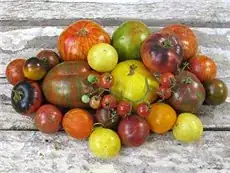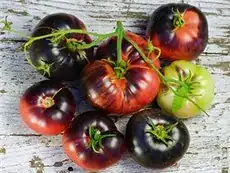Don't believe in studies you read about in the newspaper.
Here's how science/medical reporting goes:
Some researcher did some genetic research on tomatoes, that researcher wrote an academic paper in dense scientific language.
Some journalist who knows nothing about science found the paper and after reading the abstract decided there's something newsworthy there.
That journalist wrote an entire article based on a flawed understanding of what is essentially the first paragraph in a paper in a language he does not understand.
Usually the journalists doesn't even call the researcher before publishing, even if he does he only picks one or two sentences that support the article's claim from the interview (the journalists is on a deadline and has to produce an exact number of words, if the topic is complicated and requires explanation it isn't good, if it turns out to be not newsworthy it's even worse).
Once the findings are mis-published in one newspaper every other newspaper in the world quotes it like it's proven fact.
It's true that tomatoes from your local grocery store have a dull taste - but it's just as likely to happen because it has been picked prematurely days before they got to you and not due to genetic conditions.
You can run your own experiment - grow some kind of fruit or vegetable, pick one good looking fruit and eat it immediately and you get a very strong flavor, leave it in the refrigerator for 3 days and it tastes more like industrial food - pick it prematurely, store it for a week and drive it all across the country and you get the industrial taste.
Now, I'm not saying the newspaper article is wrong, what I'm saying is that science (and medical) coverage in newspaper is so bad and often wrong you should just ignore it.
if you want to see how bad it is this blog by a journalists who is actually a doctor covers bad medical news reports in UK - if you follow this blog for a while you will never believe any science related newspaper article again


